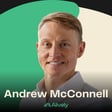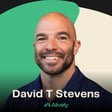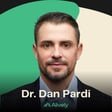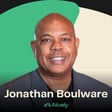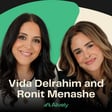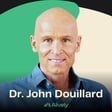
Healthspan: What It Is and Why You Should Care - E68
What is healthspan?
You may have heard the word, but what does it actually mean?
Living longer isn’t the real challenge - it's spending those extra years feeling strong, clear-minded, and truly alive.
Most of us chase the number on the calendar, counting birthdays and hoping for longevity. But we rarely stop to ask how many of those years are spent fighting chronic illness, running low on energy, and losing out on what makes life enjoyable. The line between “lifespan” and “healthspan” is the difference between simply surviving and thriving.
This episode is the first of a micro series diving into what healthspan actually means. Join me to learn why it’s becoming urgent, and what steps can help you add vitality - not just years - to your life.
In this episode you will learn:
- The clear difference between lifespan and healthspan, using simple road and car analogies.
- Why healthspan matters more than just living longer, and how it relates to real life quality.
- The history and growing scientific focus on healthspan, with roots going back to the 1980s.
- How biological age shows the true state of your health, beyond just the number of birthdays.
- The major health gap in the US, where many live long but much of that time is unhealthy.
- Why focusing on healthspan is not a trend, but a shift toward adding energy and clarity to daily life.
Resources
- Connect with Andrew on Instagram: https://www.instagram.com/mandrewmcconnell
- Follow Alively on Instagram for regular updates and insights: https://www.instagram.com/alively_official
- Learn more about healthspan from Andrew’s blog: https://www.mandrewmcconnell.com/blog
This podcast was produced by the team at Zapods Podcast Agency:
Find the products, practices, and routines discussed on the Alively website:
